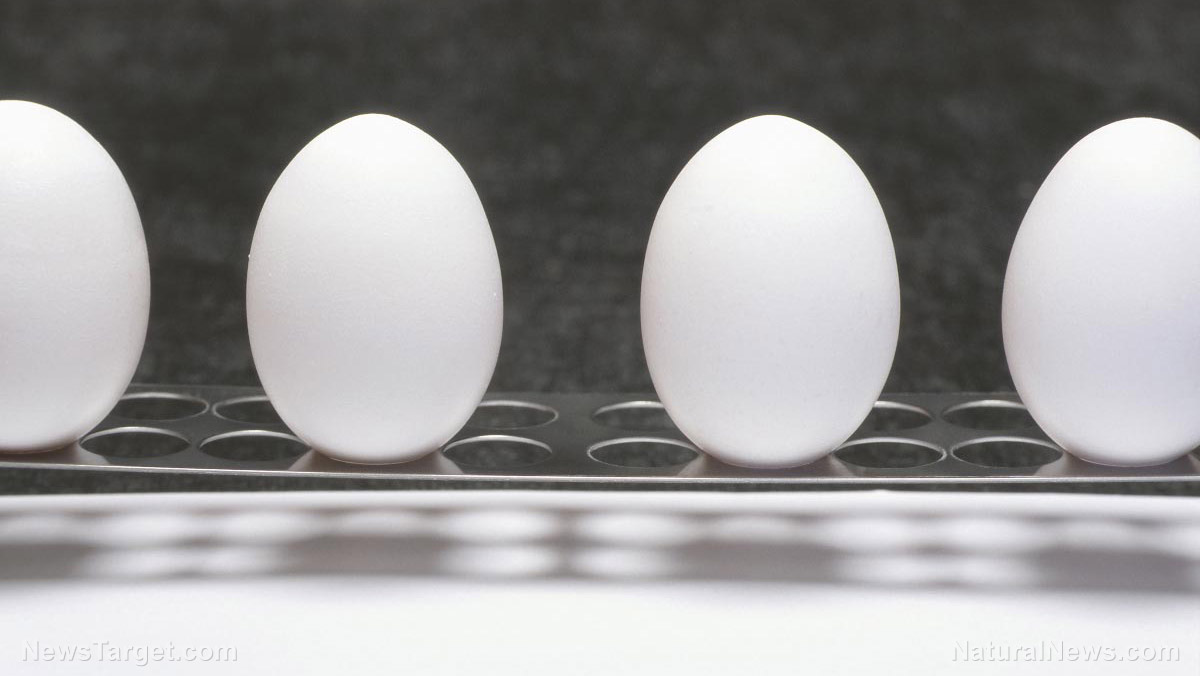
Advertisement
As a rich source of protein, eggs are commonly eaten by people looking to gain muscle. But as it turns out, even babies can benefit from eating an egg a day.
Why eggs are good for babies
Eggs are excellent sources of nutrients that are important for your baby’s health. Egg yolks contain a whopping 250 milligrams of choline, which promotes normal cell activity, enhances liver function, sharpens your baby’s memory and helps transport nutrients throughout the body. In addition, eggs are also rich in riboflavin, vitamin B12, folate, phosphorus and selenium, all of which support your child’s health.
“Eggs can be affordable and easily accessible,” said Lora Iannotti, an assistant professor of public health at Washington University. “They are also a good source of nutrients for growth and development in young children.”
In 2017, Iannotti and her colleagues conducted a study involving 163 Ecuadorian babies aged six to nine months to determine whether introducing eggs at an early age improves children’s nutrition.
The researchers instructed the families of 83 babies to feed them an egg a day for six months and told the families of the remaining babies to continue feeding them the same diet. Iannotti and her team visited the families once a week to monitor for adverse reactions, distribute eggs and check whether the families were compliant with the instruction.
The researchers found that eating an egg a day reduced stunting cases and the number of underweight babies by 47 and 74 percent, respectively. The babies who ate eggs also ate fewer sugary foods and had higher levels of important nutrients in their blood than those who kept eating the same diet.
“We were surprised by just how effective this intervention proved to be,” Iannotti said. “Our study carefully monitored allergic reactions to eggs, yet no incidents were observed or reported by caregivers during the weekly home visits.”
Should you start giving eggs to your babies?
Pediatricians used to recommend waiting until your baby’s first birthday before giving him or her a whole egg. It was thought that babies might not be able to handle certain proteins in egg whites since toddlers’ immune systems are not yet fully developed.
Researchers also say that introducing eggs too early might cause an egg allergy. But a 2010 study involving nearly 2,600 infants found that the opposite might be true. In fact, babies who started eating eggs after their first birthday were actually more likely to develop an egg allergy than those introduced to the food between four to six months after birth, the study found.
So should you start giving your toddler eggs? Allergies are often inherited, so you may want to exercise caution if someone in your family is allergic to eggs. You should also seek the advice of your baby’s pediatrician.
If your baby is allergic to eggs, it’s possible that they will outgrow the allergy later in life. Children often outgrow egg allergies by age five.
How to introduce your child to eggs
When introducing new foods to your baby, the recommendation is to add them slowly and one at a time. This allows you to monitor for potential adverse reactions and provides a good idea of which food caused the reaction.
Introduce your child to eggs on day one and then wait four days before adding anything new to his or her diet. To be safe, start by feeding your child egg yolks only. Unlike egg whites, yolks do not contain proteins that can trigger allergies.
Here are some baby-friendly meal prep ideas on how to add egg yolks to your child’s diet:
- Hard-boiled. Hard boil an egg, peel off the shell and take the yolk out. Mash it together with breast milk or formula. As your toddler starts to eat more foods, you can also mash the yolk with pureed banana, avocado, and other fruits and vegetables.
- Milk-scrambled egg. Separate the yolk from a raw egg and heat up a frying pan with organic butter. Scramble the yolk with breast or whole milk. You can also add a tablespoon of pureed veggies that are already included in your child’s diet.
- Oat-scrambled egg. Separate the yolk from a raw egg and combine it with half a cup of cooked oatmeal and fruits or veggies. Scramble until cooked and then cut or tear into nibbles.
Eggs are chock-full of nutrients that support your baby’s health, such as choline and B vitamins. Check with your child’s pediatrician before adding eggs to your baby’s diet.
Sources:
Advertisements







